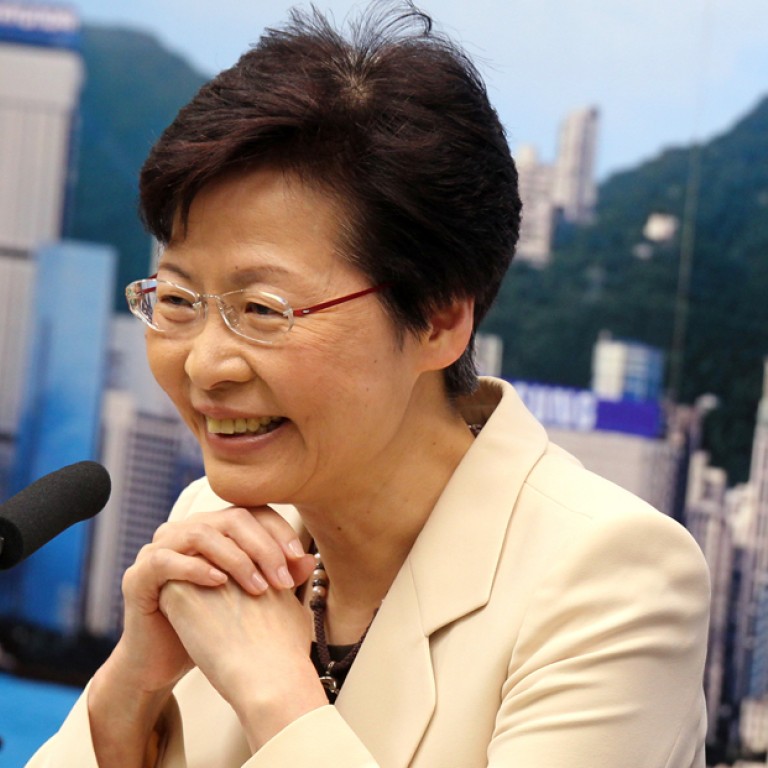
Carrie Lam, Fanny Law speak up against claim of unpatriotic HKU polling
Chief Secretary Carrie Lam and Exco member Fanny Law speak up after Lee Shau-kee's son tells state leaders surveys are unpatriotic
Chief Executive Leung Chun-ying's second in command and his former election chief both defended surveys conducted by the University of Hong Kong, after a property tycoon's son criticised the research as unpatriotic in front of national leaders.
Chief Secretary Carrie Lam Cheng Yuet-ngor praised the findings of opinion polls as useful to the governance of the city, in an apparent move to pre-empt any concerns about suppression of academic freedom.
She suggested people who fell outside that area of expertise should refrain from commenting on it. "We [the government] pay attention - I myself also often pay attention - to the public opinion polls conducted by different organisations," Lam said yesterday.
She continued: "As regards the credibility of these organisations or the reliability of their individual studies, such discussions are best left to academics and professionals."
Echoing Lam's views was Fanny Law Fan Chiu-fun, Leung's top election aide turned Executive Council member.
"I have been drawing reference from HKU's surveys and I think their results are fair," Law said. "But the university can make its polls more transparent to ease public concerns."
A day earlier, Peter Lee Ka-kit, vice-chairman of billionaire Lee Shau-kee's property empire Henderson Land Development, had run down the HKU's public opinion programme for "publishing poll results unfavourable to the central and local governments at critical moments".
Peter Lee, a standing committee member of the Chinese People's Political Consultative Conference, spoke at a Beijing group meeting attended by Zhang Dejiang - one of seven members of the Politburo Standing Committee and chairman of the nation's legislature, the National People's Congress.
Lee alleged the university surveys served the political needs of the pan-democratic "opposition camp" and called for a polling body, to be funded by "patriotic" local chambers of commerce.
Lee declined yesterday to elaborate. Two industry groups were open to the idea of more polling organisations. Stewart Leung Chi-kin, chairman of the Real Estate Developers Association's executive committee, said he had "no problem" with it.
Federation of Hong Kong Industries chairman Stanley Lau Chin-ho said: "We are businessmen and are not experts in this area. But it is a good idea to have more organisations doing polls."
CPPCC delegate Shiu Sin-por, head of the Central Policy Unit, said he "does not understand" how HKU ran its polls. "Some polls" in Hong Kong "could be politically motivated", he said.
The director of the HKU programme said the polls followed a schedule. The work had nothing to do with releasing unfavourable results "at critical moments", Dr Robert Chung Ting-yiu said.
HKU law dean Professor Johannes Chan Man-mun urged Lee to disclose any objective, factual basis on which he had drawn his conclusion. Lee would otherwise be "insulting academic freedom", showing how fragile the city's freedoms could be, he said.


